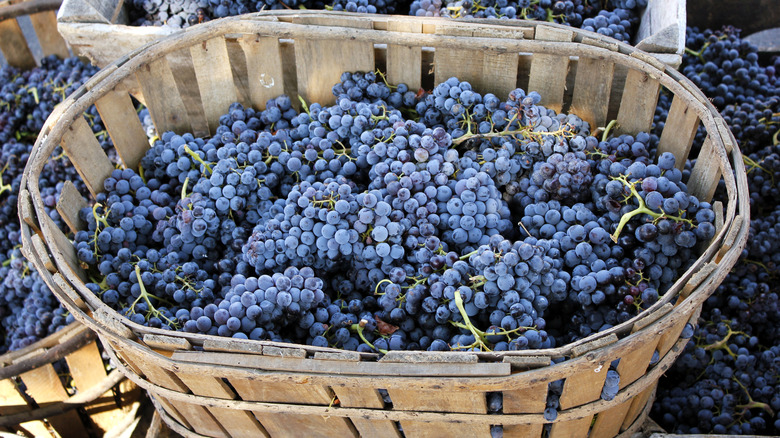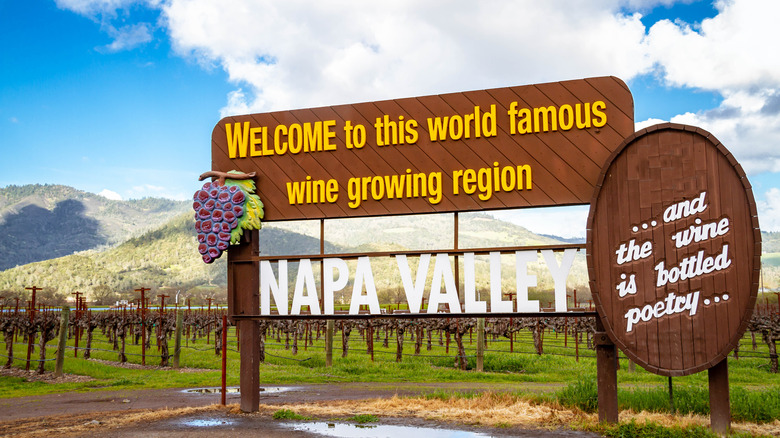Why Vintage Is Less Important When It Comes To Californian Wines
Mark Twain once wrote, "Climate is what we expect, but the weather is what we get." This philosophy is especially true when considering the vintage of a wine. Wine producers know what climate they are growing and nurturing their vintage of grapes, but weather can be unpredictable. According to WTSO, cooler and warmer weather can definitely impact the grapes used to create your favorite vino. The blog explains these two opposing temperature fluctuations can create a yin and yang flavor in grapes. Cooler weather is apt to produce a tart-flavored fruit and warmer weather creates a sweeter-tasting fruit that ultimately leads to a fuller-body wine.
Of course, truly extreme weather can really influence the grapes being grown. Wine Spectator reported freezing temperatures and frost in 2017 caused quite a bit of devastation to crops in Bordeaux, Burgundy, and Champagne, completely ruining those tender fruits for some winemakers. Still, on the other end of the spectrum is the dreaded drought, which On Fruit explains can make for poor aging in wines made from moisture-deprived crops. This is why so many wine connoisseurs are always talking about the vintage of a wine and whether or not it was a good year for grape growers.
But if you are purchasing wines made in California, you may not need to concern yourself with the vintage or year the grapes were grown and harvested. Here's why.
California weather is consistent
California very typically produces good vintages. Even with all the natural disasters, this state is home to -– wildfires, droughts, and earthquakes — the grapes it produces have thrived, resulting in many a good bottle of wine. Wine Spectator goes on to echo this opinion, noting "vintages hardly matter anymore" given how quickly people buy and drink those bottles. Instead, the vino experts at this publication suggest watching the price of your favorite wine is more important than the year it was produced.
If vintage doesn't matter in California, why have it? Wine Spectator makes the case that a classification of "non-vintage" wines is a "good idea." What exactly does non-vintage mean? Wine Spectator explains that similar to non-vintage Champagne, which has been blended from several different years of grapes, the same can be achieved with wine vintages. The upside of this practice is consumers get a consistent drinking experience. The publication explains the practice of creating non-vintage wines only makes some wines better in the long run, noting Champagnes that do this still taste delicious.

